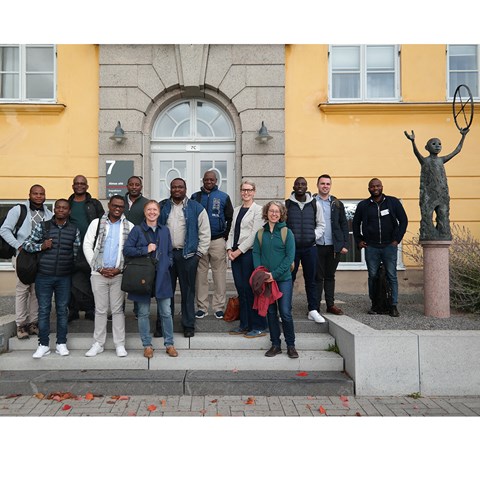Facts:
According to FAO between 20 and 40 percent of crop production are lost before harvesting due to pests. Sustainable pest management is crucial to secure crop yield and to decrease the use of harmful pesticides. It takes advantage of interactions between organisms occurring naturally in the agricultural ecosystems, and other nature-based solutions to control pests. Climate change impacts both the possibilities to use such nature-based solutions and the risk for pest outbreaks. Development of ‘climate smart’ pest management enables more resilient sustainable pest control. Jointly with partners, SLU has developed a resource package for healthy harvests in a changing climate.
SLU Centre for Pesticides in the Environment (CKB) is a partnership forum within the area of chemical pesticides for researchers at SLU and interested parties outside the university. The Centre focuses mainly on fate and effects in the environment of pesticides used within agriculture. The purpose of CKB is to develop knowledge that allows the effects of chemical pesticides on the environment to be described and predicted in a reliable way and that this knowledge shall lead to countermeasures so that the impact on the environment lies within acceptable limits.
